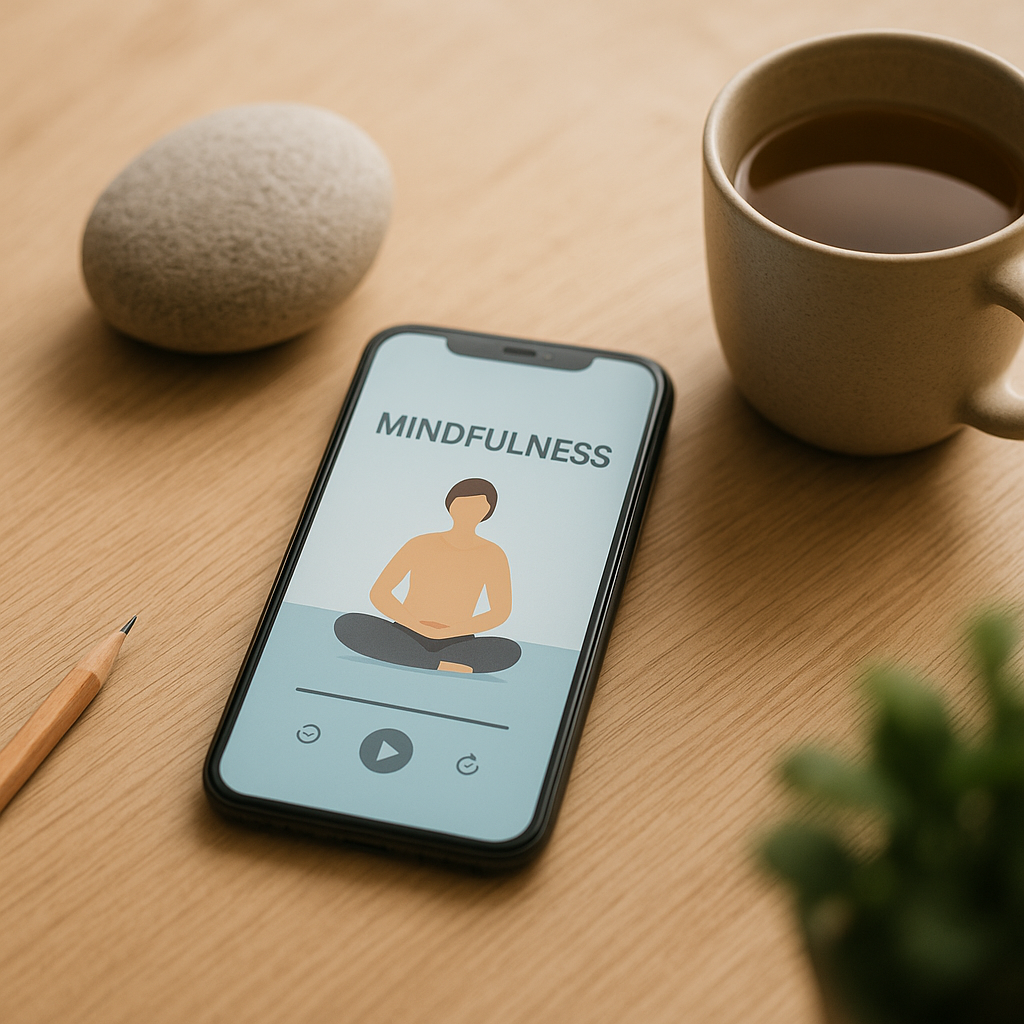Exploring the Benefits of Mindfulness Apps for Mental Well-being
As mental health awareness surges, mindfulness apps are gaining traction across all demographics. Users increasingly report enhanced emotional well-being, improved focus, and stress reduction through digital mindfulness practices. This article delves into the benefits of these applications and their role in promoting psychological health.

The Rise of Mindfulness Apps
In today's fast-paced world, mental health challenges have reached unprecedented levels. Factors such as the ongoing demands of work, social pressures, and the complexities of daily life contribute significantly to stress and anxiety. Consequently, individuals are seeking accessible solutions to improve their mental well-being, leading to a surge in the popularity of mindfulness apps.
Mindfulness, a concept rooted in ancient traditions, emphasizes the importance of being present and fully engaging with the moment. This practice has been embraced in modern mental health care, and apps provide an effective way for users to incorporate mindfulness into their daily routines.
Features of Effective Mindfulness Apps
Mindfulness apps vary widely in their functionalities. Below are characteristics that distinguish the most beneficial applications:
- User-Friendly Interface: A simple, intuitive design allows users to navigate the app easily, regardless of their tech proficiency.
- Guided Meditations: Many apps offer a range of meditations, tailored for different levels and needs, from beginners to advanced practitioners.
- Daily Reminders: Notifications help users establish a consistent practice, encouraging regular engagement with mindfulness activities.
- Progress Tracking: Features that allow users to monitor their progress can motivate continued use and highlight improvements in mental well-being.
- Community Support: Some apps facilitate community interactions, providing users with resources and peer support networks.
Benefits for Mental Health
Utilizing mindfulness apps can lead to several noteworthy benefits:
1. Stress Reduction
Practicing mindfulness through guided sessions has been shown to lower cortisol levels, the hormone associated with stress. Regular use can result in a calmer and more centered state of mind.
2. Enhanced Emotional Health
Mindfulness cultivates awareness and acceptance of emotions, aiding users in developing healthier emotional responses. Research has indicated a correlation between mindfulness practices and decreased symptoms of anxiety and depression.
3. Improved Focus and Concentration
Mindfulness training enhances cognitive flexibility and focus. Users often report better concentration and productivity in both personal and professional environments.
4. Better Sleep Quality
Mindfulness practices can alleviate insomnia by promoting relaxation. Techniques such as body scans or breathing exercises prepare the mind for restful sleep.
5. Social Connection
Some mindfulness apps foster a sense of community, allowing users to connect over shared experiences and challenges, which can be crucial for mental health.
Challenges and Considerations
Despite the numerous benefits, there are challenges associated with the use of mindfulness apps:
- Over-Reliance: Some users may lean heavily on apps, potentially neglecting other essential aspects of mental health care, such as therapy or medication.
- Quality Variegation: Not all apps are created equal; some may lack scientific backing or qualified guidance, necessitating user diligence in selecting credible options.
- Potential for Distraction: While designed for mindfulness, the very device used for meditation can also present distractions, such as notifications or other applications.
Conclusion
Mindfulness apps represent a promising avenue for enhancing mental well-being in an era characterized by elevated stress levels and a greater focus on mental health. While challenges exist, the potential benefits — including stress reduction, improved emotional health, and heightened focus — make these digital tools valuable resources. As more individuals seek means to enhance their mental resilience, mindfulness apps may play an increasingly pivotal role in supporting psychological health.
Related Video
For a deeper dive into the world of mindfulness, watch this insightful video on mindfulness meditation techniques: Mindfulness Meditation Techniques.








